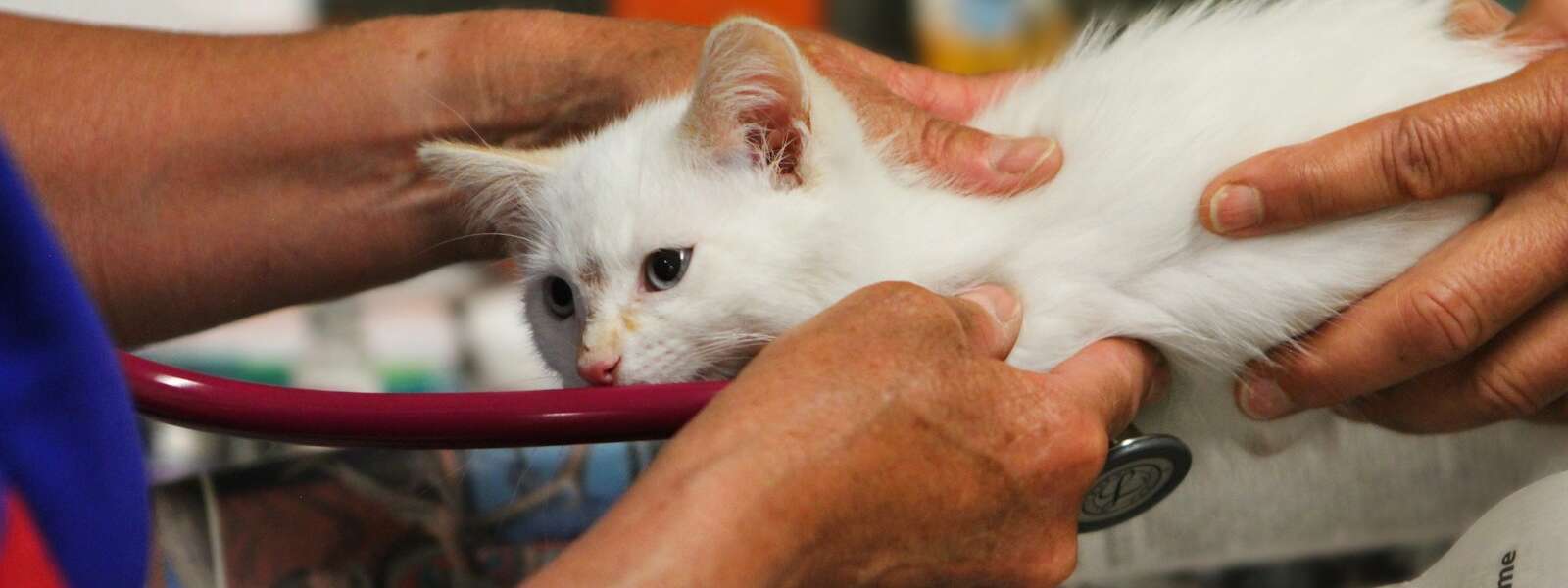
An unexpected trip to the vet’s office can be costly, but a University of Guelph researcher says price isn’t the only factor that keeps some people from accessing veterinary care in Canada.
Dr. Quinn Rausch, a postdoctoral fellow in the Ontario Veterinary College’s Department of Clinical Studies, says people seeking care for their animals may run into many challenges beyond high veterinary costs. They include a lack of nearby clinics, limited opening hours and capacity at clinics (making it difficult to book an appointment), transportation issues and communication barriers.
Past experiences may also play a role in how people think about veterinary care, Rausch adds. A pet caretaker who has experienced discrimination, judgement or inadequate care when seeking human or animal health care may be reticent to seek help in the future.
“Veterinary service providers need to understand each of these individual barriers, but also how these things intersect,” Rausch explains. “By looking at community care through a holistic view, clinics can explore innovative ways to meet their clients’ needs.”
Rausch studied companion animal behaviour and welfare during their PhD, to understand how humans could best care for the animals that live among us. They found that many families face significant barriers to their health and well-being because of systems that were set up to leave them behind.
Rausch is leading a new study on barriers to veterinary care funded by the Kim and Stu Lang Community Healthcare Partnership Program (CHPP), exploring how programs and services across Canada are addressing service gaps and barriers to care.
The team found there are many tools being used to improve veterinary care access in Canada, including telehealth options, mobile or pop-up clinics, free or low-cost services and training on cultural humility and contextualized care. However,
Rausch says there’s still more to be done to ensure everyone has access to vet care, including hearing directly from people struggling to access care to understand what their experiences, needs and perspectives are.
They are available for interviews.
Contact:
Dr. Quinn Rausch
qrausch@uoguelph.ca
